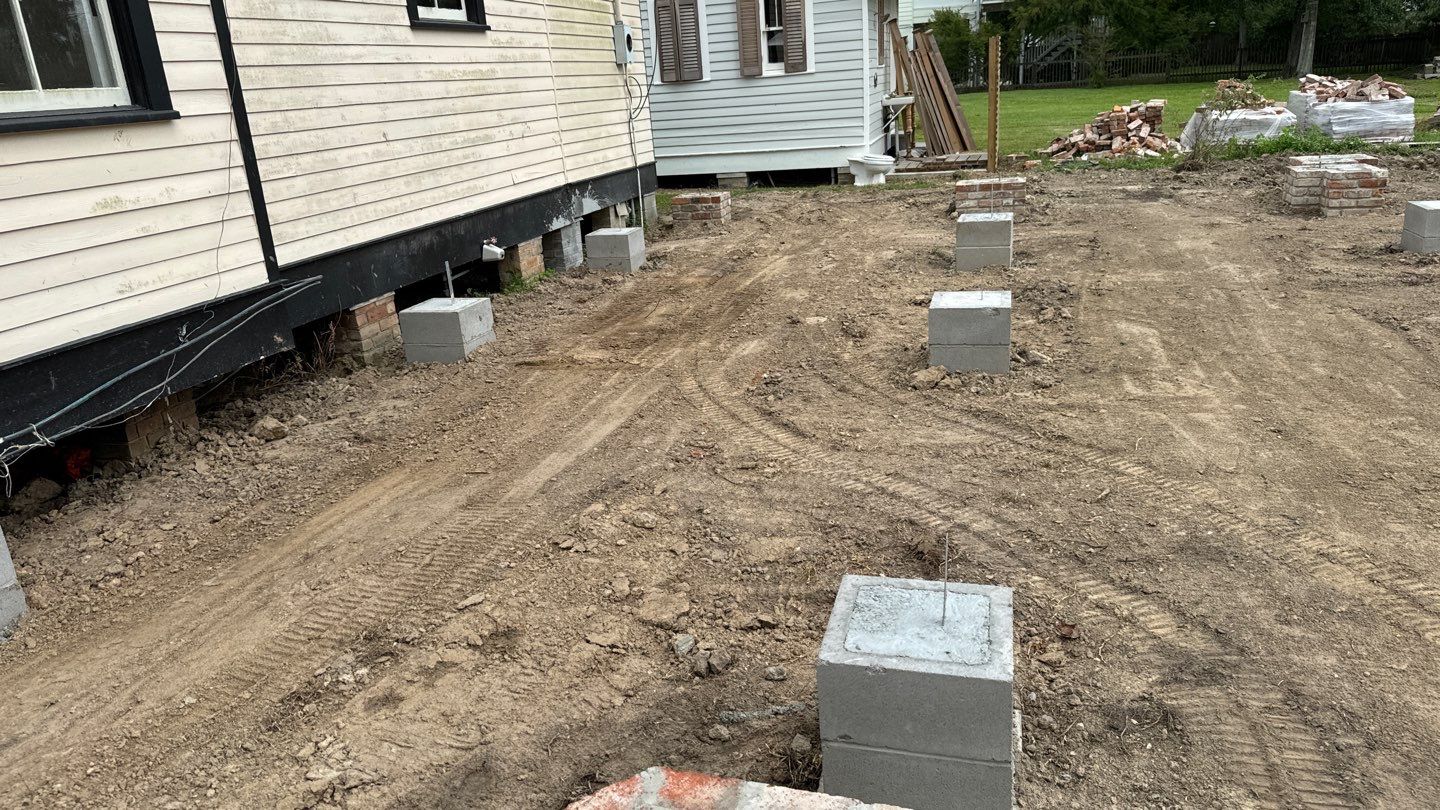The Crucial Role of Foundation Footings
Foundation footings are the unsung heroes of your home’s structural integrity. These critical components are typically made of concrete and are installed below the foundation walls to help distribute the weight of the building evenly across the ground. Footings prevent the building from sinking, shifting, or experiencing uneven settling, which can lead to severe structural damage over time.
What Are Foundation Footings?
Foundation footings are essentially the base that supports your entire home. They are constructed to bear the load of the house and distribute it over a larger area to prevent the soil beneath from compacting excessively. This distribution helps to minimize movement and shifting, which can compromise the stability of the structure.
Key Functions of Foundation Footings:
- Load Distribution: Footings spread the weight of the building over a larger area, reducing the stress on the soil and preventing settling.
- Stability: By providing a stable base, footings help keep the foundation walls and the entire structure level.
- Protection: Footings protect the foundation from soil movement and water damage, which can lead to cracks and structural issues.
The Importance of Regular Inspections
Regular inspections of your foundation footings are essential to ensure the long-term stability and safety of your home. Over time, footings can be affected by various factors, such as soil erosion, water damage, and natural settling. Identifying and addressing issues early can prevent costly repairs and extensive damage.
Signs Your Foundation Footings Need Inspection
Knowing when to inspect your foundation footings can save you from significant structural problems. Here are some common signs that indicate your footings may need attention:
- Cracks in Walls: Horizontal or stair-step cracks in your walls can signal foundation movement.
- Uneven Floors: Sloping or uneven floors are often a result of foundation settling.
- Sticking Doors and Windows: If your doors and windows become difficult to open or close, it could be due to foundation issues.
- Water Damage: Persistent dampness or pooling water around your foundation can weaken the footings over time.
Benefits of Regular Inspections
Regular inspections offer several benefits, ensuring your home remains safe and structurally sound:
- Early Detection of Problems: Regular inspections help identify potential issues before they become significant problems, saving you time and money on extensive repairs.
- Increased Lifespan of Your Home: By maintaining your foundation footings, you can prolong the lifespan of your home and protect your investment.
- Peace of Mind: Knowing that your foundation is in good condition provides peace of mind and confidence in the safety of your home.
How to Inspect Foundation Footings
Inspecting foundation footings requires a keen eye for detail and an understanding of potential issues. While some homeowners may choose to perform initial inspections themselves, it’s often best to hire a professional for a thorough assessment.
DIY Inspection Tips
If you decide to perform a preliminary inspection, here are some tips to get you started:
- Visual Inspection: Check for visible cracks in the foundation walls and footings. Small hairline cracks may be normal, but larger cracks can indicate a problem.
- Check for Moisture: Look for signs of water damage, such as dampness or water pooling around the foundation.
- Monitor Shifts: Pay attention to any noticeable shifts or settling in your home’s structure, such as doors and windows that stick or uneven floors.
Professional Inspection
Hiring a professional foundation expert ensures a comprehensive inspection. Professionals have the tools and expertise to identify issues that may not be visible to the untrained eye. They can also provide recommendations for repairs or maintenance to keep your foundation in optimal condition.
Tips for Maintaining Foundation Footings
Maintaining your foundation footings involves proactive measures to prevent damage and ensure stability. Here are some helpful tips:
Ensure Proper Drainage
Water is one of the biggest threats to foundation footings. Ensure that your property has proper drainage systems in place to direct water away from the foundation. This includes gutters, downspouts, and proper grading around your home.
Control Vegetation
Tree roots and large shrubs can interfere with foundation footings, causing cracks and shifting. Keep large plants and trees at a safe distance from your home and consider installing root barriers if necessary.
Address Soil Issues
The type of soil your home is built on can affect the stability of the foundation footings. Expansive soils, for example, can swell and shrink with moisture changes, leading to foundation movement. If you suspect soil issues, consult a professional for advice on stabilizing the soil around your home.
Conclusion
Foundation footings play a vital role in maintaining the structural integrity of your home. Regular inspections and proactive maintenance are essential to prevent damage and ensure the long-term stability of your property. By staying vigilant and addressing potential issues early, you can protect your home and enjoy peace of mind knowing that your foundation is secure.
References:

